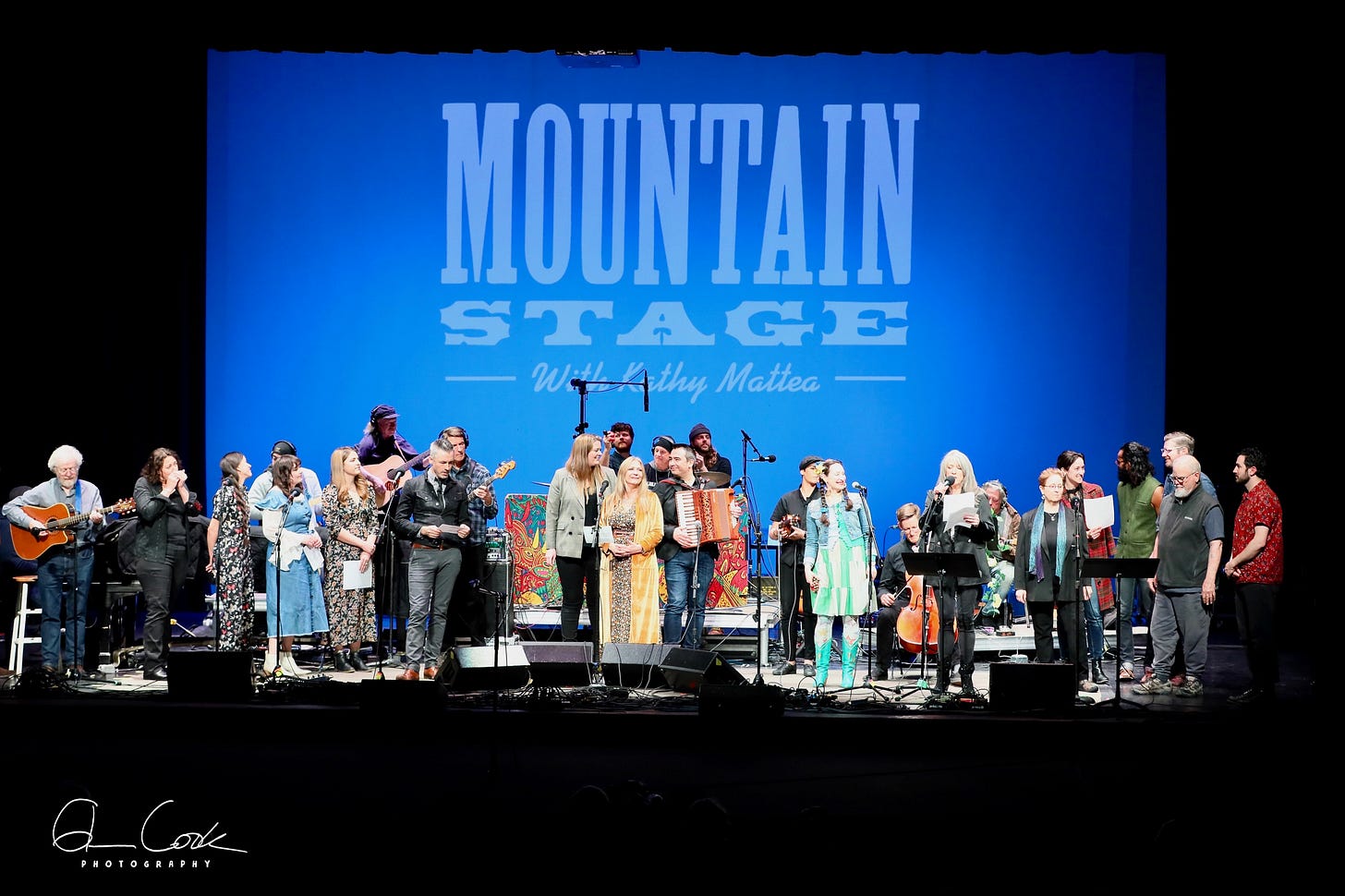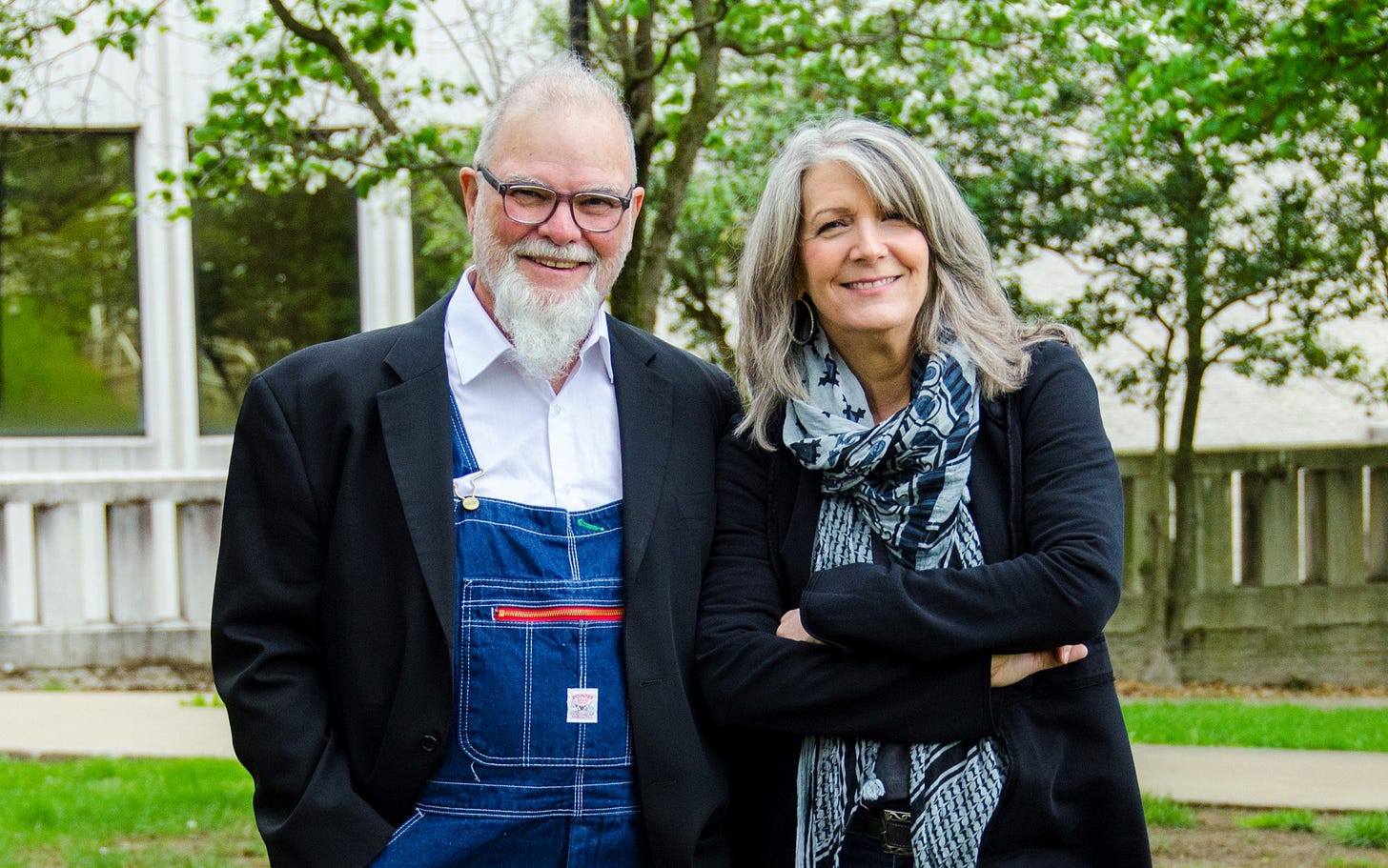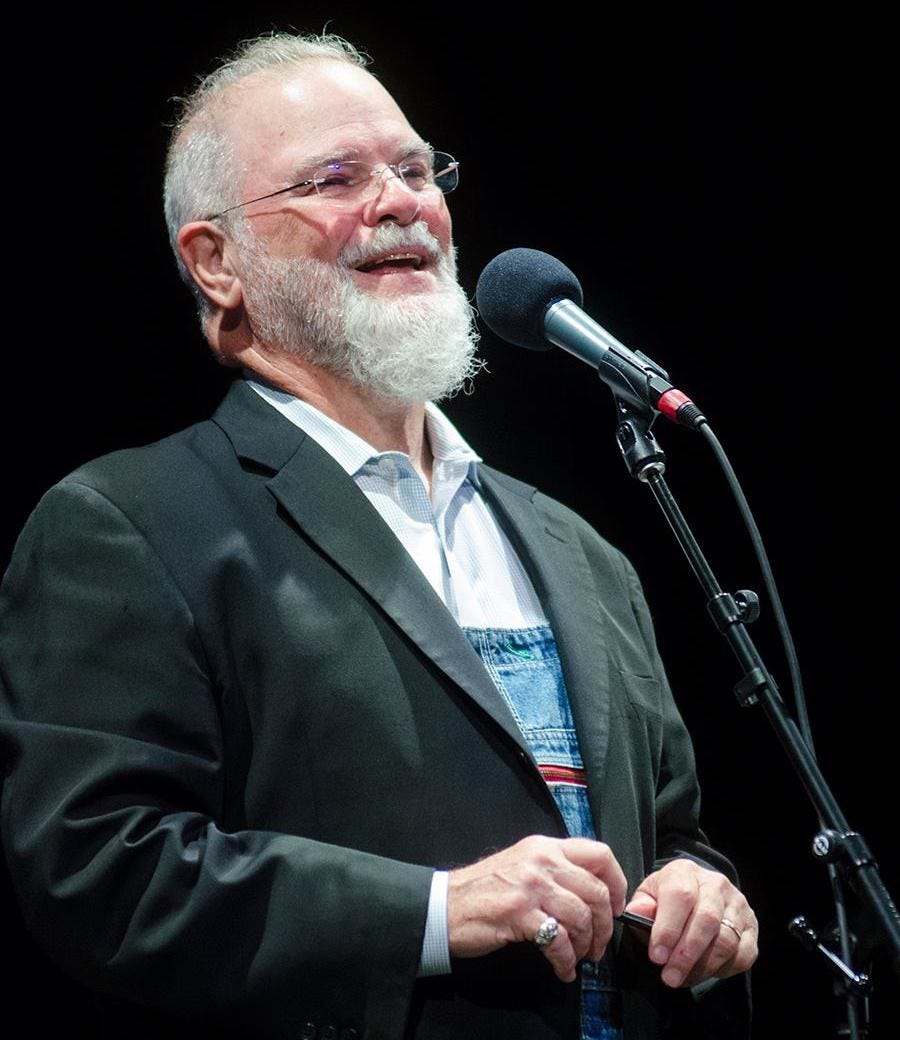Conversations: Larry Groce
Longtime Mountain Stage host reflects on career, retirement, transitions
National Public Radio’s Mountain Stage is celebrating its 40th anniversary while simultaneously going through a transition. Larry Groce, the longtime artistic director of the Charleston, W.Va., based program, ceded his hosting duties to Kathy Mattea in 2021 and is retiring for good at the end of June.
Groce, 75, created the show with producer Andy Ridenour and engineer Francis Fisher for West Virginia Public Broadcasting. Mountain Stage aired its pilot in 1981 and then started regular broadcasts in December 1983. During that time, the show’s guest list has included a “Who’s Who” of Americana and independent musicians, many of whom received their first national radio or TV exposure on the program.
Among them: Lyle Lovett, Alison Krauss, Mary Chapin Carpenter, Sheryl Crow, Lucinda Williams, The Avett Brothers, The Barenaked Ladies, Counting Crows, Ani DiFranco, Phish, Sarah McLachlan, Tori Amos, and Ben Harper. Legends like Bill Monroe, Ralph Stanley, Doc Watson, Brownie McGhee also have appeared on the program, as have artists like R.E.M., Tim O’Brien, and Norah Jones.
In mid-March, I spent the day behind the scenes with Mattea, Groce, and others who work on stage and off as they prepared to tape Mountain Stage’s 1,009th show, which airs this weekend on more than 280 stations nationwide. This week’s guests —Darlingside, Altan, Rachel Sage, Dear Darling, and Royal Wood — are a typically eclectic mix of musicians, a hallmark of the show since its beginning.
During brief breaks, I sat down with Groce and Mattea separately to talk about the show’s past, present and future. The first conversation is with Groce, who was working as a “musician in residence” as part of a National Endowment for the Arts-sponsored program when he moved to West Virginia in 1972.
The interview has been condensed and edited for clarity.
Let’s go back to the beginning. At the time, you were traveling to different states as part of the NEA grant. How did you get involved with creating the show?
Larry Groce: I got involved in it because I liked the other two guys (producer Andy Ridenour and engineer Francis Fisher) who called me. They worked for West Virginia Public Radio, and I didn't. At the time, they wanted to do a show because public radio was expanding in this state. They didn’t care about the format so much, but it had to be something that wasn't expensive, and it had to be live. It wasn't just a needle drop in the studio thing. They wanted to do a show.
They paid enough for me to say I would come back to West Virginia no matter where I was once a month. All I asked them was, “Instead of saying, this is a statewide show, let's say it's going to be a national show."
We were laughing because we had no money for this, or almost no money. We had no equipment. We were strapping things together. We didn't have a mixing board. We had two small mixers we put together and Francis figured a way to rig them thing. We had no experience. None of us had ever done a show like this. In a way, we were perfectly naively positioned to try something that you really can't do.
By 1985, you had national distribution through NPR, but you’ve said the suits there were not optimistic about your chances. Why?
Larry: I remember the first conversation Andy and I had with somebody from NPR. Frankly, they were very condescending to us and they said, ''We'll put you on, but you'll never have more than 25 or 30 stations." We thought, "Okay, whatever. You have your idea; we have our idea." That gave us more incentive.
Don't forget, everything in West Virginia's an underdog, no matter what. You hear West Virginia and something with mountain in the title, and people will say, "Oh, you're a fiddle and banjo show." We are 10% of the time, but the other 90% were something else. The stereotype of this state is so huge and so strong that it takes a lot to convince people. Many don’t listen; they just assume. They don’t even look at our roster of artists. All you have to do is take a quick look and go, “Wait a minute. This is not what I thought it was."
After 40 years of this, how does it feel to be leaving the show in June?
Larry: As you can imagine, there's a lot of mixed emotions. It will be even harder once it happens, I'm sure. I've been with it since the beginning, and it will be an adjustment, but I'm stepping out of it one step at a time.
Kathy became the host about a year and a half ago. That was a big step, but most people didn't understand that was only about a third of my job. They figured that was it. I've spent the last two or three years teaching other people how to do the editing, but the hardest thing is the artistic directing. I've been talking to people about my philosophy and the show's philosophy of how we book and why we book who we book.
How does the booking process work?
Larry: First, we don't want to be limited by categories. We don't just book a single category. The majority of people are in the Americana genre, but there's several flavors of that. There's a difference between a blues singer and a bluegrass player, but they're all Americana according to the charts and stuff. We've always done that, though. We've always had that. We also have all the indie pop and alt-rock and world music and traditional music. We want to look for originality that will last.
We like to book people on the show who we could have again in 10 years and again in 20 years because they're still good. If somebody's really good, they will still be good even though they may not be as popular at the moment. Many people have been on since the late 1980s and they continue to come on until they pass away. I have no problem with that because they're good.
Besides the quality of the musicianship, do you gravitate toward a certain style?
Larry: The style is not as important as the quality of the people and the originality. What they do, how consistent, how deep they are. We're really not interested in trends. We're not interested in being the hippest show around. Think about where we come from, this state. Why would we want to do what New York does? That's silly, idiotic even to think about. So we don’t think about it. We do something else.
West Virginia has a certain personality that's old, it's consistent, and it's person to person. In music cities — Austin, Nashville, New York, L.A., wherever it happens to be at the moment — somebody's shaking your hand and looking over your shoulder to see who else is more important than you. [Chuckles]
That's not what we do. We don't need to do that. When they come, we're grateful that they're here. I'm sure they suspect that we're just saying that, but we are. We're glad we could get them.
You hosted more than 800 consecutive shows before taking a break, which is remarkable. When did you start thinking about this transition?
Larry: In 2016, I said we needed to get some guest hosts. We asked Tim O'Brien to do one because he's been on the show more than anybody else. He did a show and then we didn't have another guest host for a while. Then when I realized it was getting closer to (retirement), we tried several guest hosts and realized pretty quickly that they need to have a connection to West Virginia. They either need to be from here or have a strong connection to here.
Nobody wants change. All of our crew, they didn't want me to leave because we have this machine that goes. It's easy. You don't want to mess with it., I said, "Boys, this isn't going to go on forever." It's been so lucky so far.
Andy Ridenour, after he retired and was living in the D.C. area, went to see Kathy at The Birchmere and she asked him about the show. He said we were trying some guest hosts and she said, “How come they haven't asked me?"
We thought Kathy wasn’t going to do this because she’s in the middle of her career. But when Andy called and asked if we’d like to have Kathy as a guest host, we said, “Of course. Are you nuts?” She came on and was really quite good.

How has the transition been with Kathy moving into the permanent role?
Larry: I think it's gone great and I'm incredibly grateful to her for even considering this. At one point, I don’t know how it came up, we asked if she would consider it fulltime and she said she would like to do it. That was a bombshell for us; if we turn that down we’re out of our minds. She’s from, literally, 20 miles from where we’re doing the show. She’s famous. She’s a Grammy winner whose sold millions of records. She’s more famous than Mountain Stage. We’ve known her since 1985 and she’s never really changed, not in the important ways. We were unbelievably fortunate to get her.
She's improved very quickly. She's a quick study. It's not as easy as it seems to host a show like this. It seems easy, but it's not. You’ve got to be comfortable. She's really quite good, and we’ve done everything we can not to mess with her style. She's not going to be like me. She's going to find her own style and do it and she should because that means you can feel the show has changed.
Evolution is what we want. We’re excited that she has taken this on, taken it to heart, and feels the right spirit. What else could you ask for?
First of a three-part series written for Americana Highways.


